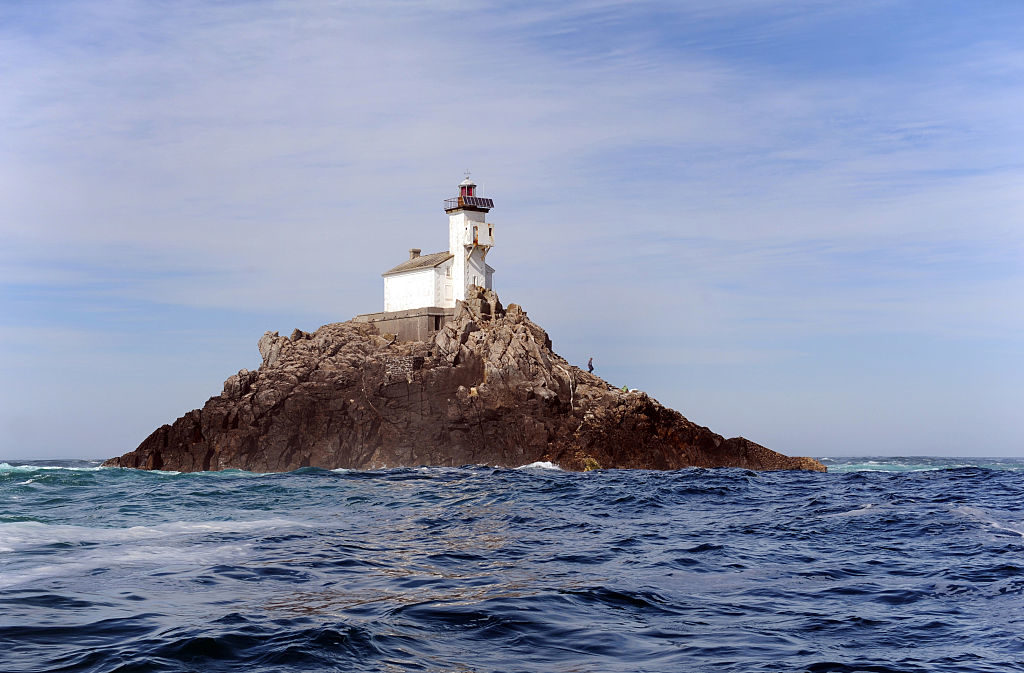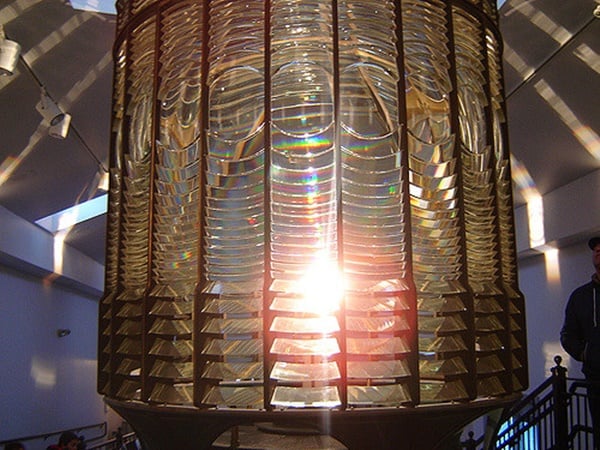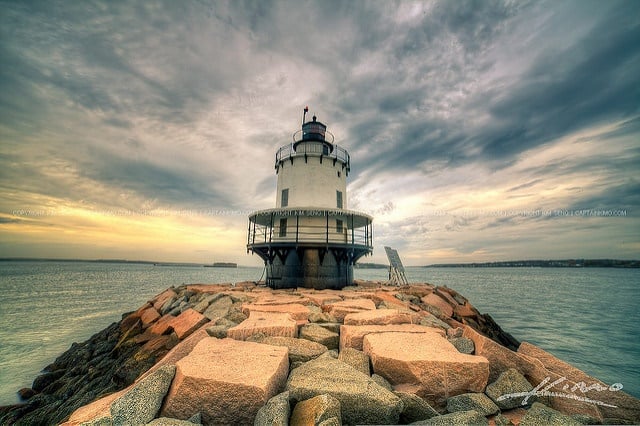Law & Politics
US Government Sues Museum Owner in Bizarre Case Over Lighthouse Lenses
Is the government "bullying a preservationist"?

Is the government "bullying a preservationist"?

Eileen Kinsella

In what is likely one of the first cases of its kind, the US government—acting on behalf of the US Coast Guard (USCG)—is suing a maritime museum and its owner for the return of two rare and valuable lighthouse lenses that it estimates are worth $600,000 together.
Attorneys acting on behalf of the Justice Department filed a claim on September 6 against Steven J. Gronow and the Maritime Exchange Museum, seeking declaratory judgment that the the US is the rightful owner of two “Fresnel” lens. The lenses are from the Spring Point Ledge Lighthouse in Portland, Maine and from the Belle Isle Lighthouse on the Detroit River in Michigan.

Example of a Fresnel Lens. Courtesy of Ceridwen via Flickr.
The lenses are named after French physicist and engineer Augustin-Jean Fresnel, whose design “revolutionized lighthouse optics,” according to a copy of the complaint obtained by artnet News. “Before the invention of the Fresnel lens, the brightest lighthouse could be seen from 8–12 miles away. The light from a Fresnel lens could shine more than 20 miles away,” according to the complaint.
The lenses, the complaint notes, are “extremely fragile and expensive to repair,” and “cleaning and maintenance are very labor intensive.” Many have been removed from lighthouses and are preserved in museums.

Spring Point Lighthouse Ledge, in Portland Maine. Courtesy of Kim Seng via Flickr.
The 13-page documents outlines the history of each lens from purchases by the US, in 1881 for Detroit (until the lighthouse was decommissioned in 1930) and in 1895, for Portland (until removal in 1960, when the US Coast Guard automated the lighthouses).
The documents cite the Coast Guard Authorization Act of 1996 that the USCG “shall retain all right, title, and interest of the United States in and to any historical artifact, including any lens or lantern, that is associated with the lighthouses.”
The court papers do not detail how Gronow and the Maritime Exchange Museum came to possess the lenses, except to note that in 2009, USCG curator Arlyn Danielson “uncovered information indicating that the defendant Exchange possessed the Spring Point Lens and the Belle Isle Lens.”
Both were listed on the Exchange Museums’ website in December 2009 as available for sale but have since been removed. The complaint also alleges they have also popped up for sale on other sites.
Gronow did not respond to artnet News’ request for comment. However, he told the Associated Press: “I’m not saying I have them anymore. It probably would be smart for me not to say anything. They could be gone.”
The same AP story notes that “members of the lighthouse community,” say the US is “bullying a preservationist who has saved rare treasures that the government once treated like junk after it switched from manually operated lighthouses to automated beacons.”
Assistant US Attorney Laura Anne Sagolla told artnet News via email: “We do not comment on litigation while it is pending.”